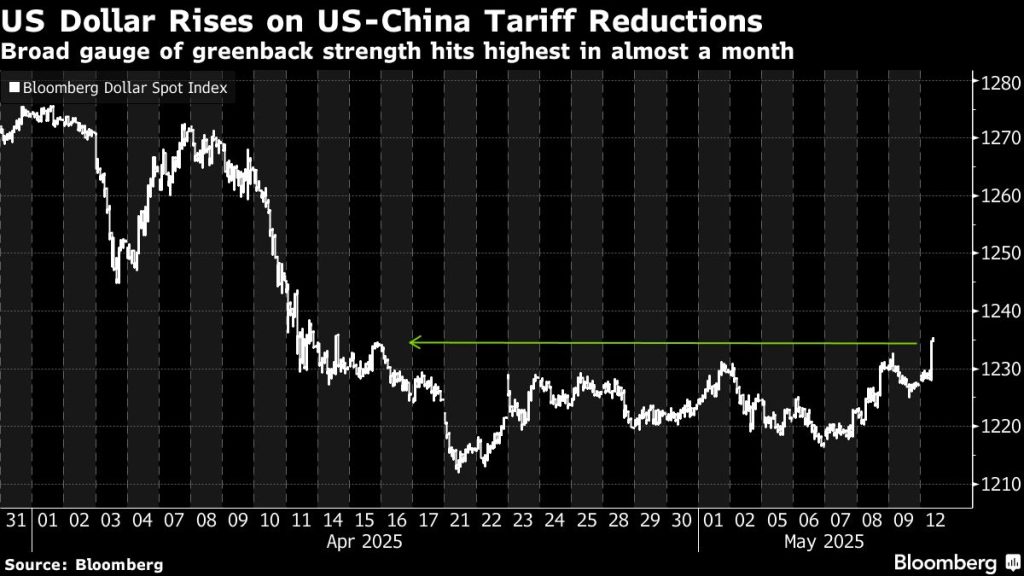
(Bloomberg) — The dollar soared and Treasuries fell as the trade war between China and the US eased, stoking appetite for risk assets.
Most Read from Bloomberg
A gauge of dollar strength rose as much as 1% as the two nations agreed to temporarily lower some tariffs for 90 days. US Treasuries fell, sending the two-year yield up as much as 10 basis points to 3.99% as traders pared bets on interest-rate cuts from the Federal Reserve.
It’s a pivot for markets, which have been roiled by US President Donald Trump’s attempts to rewire global trade. He targeted China with particularly punitive tariffs, sparking a trade war and fears of a recession.
“This kind of coordinated tariff relief, even if temporary, changes the investment landscape,” said Nigel Green, chief executive officer of deVere Group. “It clears a path for businesses to recalibrate their outlook, and for markets to rally on something more than just hope.”
Traditional haven assets as the Japanese yen and the Swiss franc plunged, as did European government bonds — the two-year German yield rose 11 basis points to 1.90%. Stocks rallied on both sides of the Atlantic.
After weekend talks in Geneva, the US and China issued a joint statement indicating that they would temporarily lower tariffs on each other’s products, buying three more months to resolve their differences. The combined 145% US levies on most Chinese imports will be reduced to 30%, while the 125% Chinese duties on US goods will drop to 10%.
“These are cuts in tariffs which are much deeper than what was expected,” said David Kruk, head of trading at La Financiere de L’Echiquier. “For those who were bearish since the tariffs announcement, this is a real pain trade. There is no more dip to buy so if you were not invested, it’s really hard to go in now.”
The euro also fell against the greenback following the announcement. The common currency, which had emerged as a haven amid the rout in US assets, fell as much as 1.5% to $1.1084, putting it on track for its worst day this year.
“This is positive for G-10 risk especially the Antipodean currencies and the US dollar,” said Valentin Marinov, head of G10 FX strategy at Credit Agricole SA. “Easing US growth fears should further help restore market confidence in the USD-denominated assets.”
